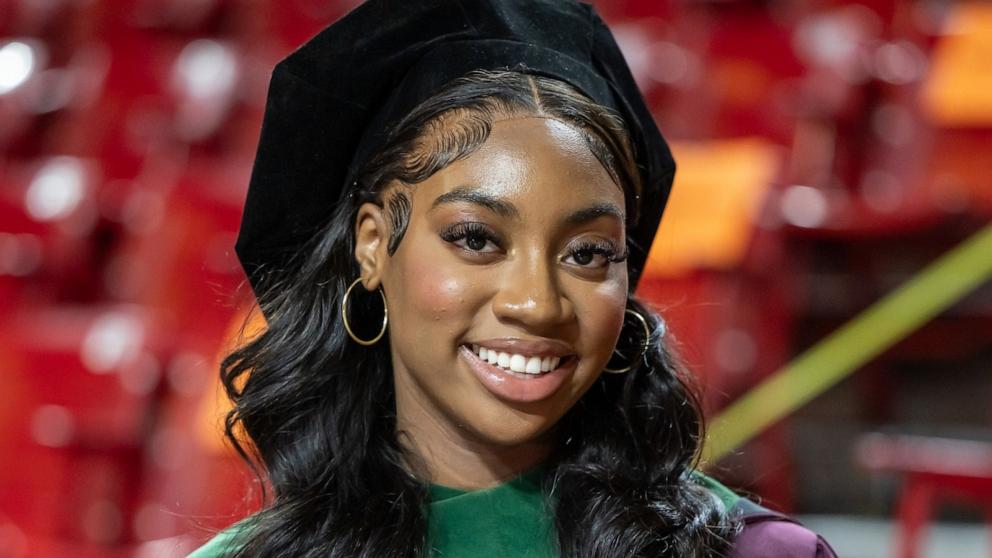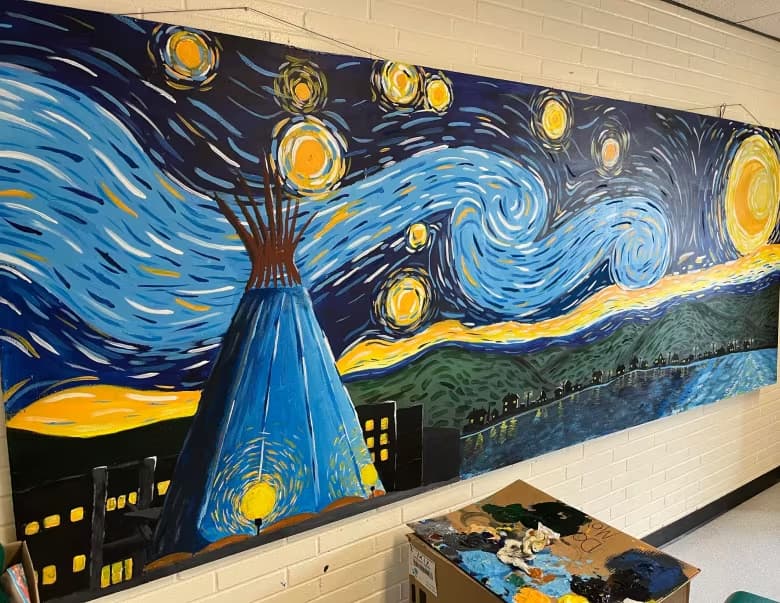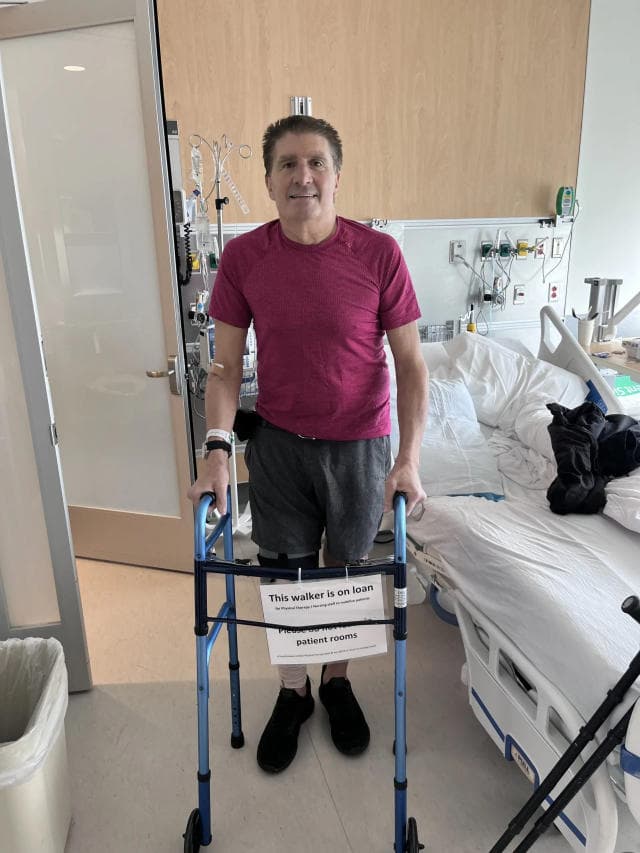
Amazing
Chicago Teen Earns Doctorate at 17
By age 14, Dorothy Jean Tillman had already earned her associate’s, bachelor’s, and master’s degrees. Despite these remarkable accomplishments, she confided to her mother, Jimalita Tillman, “I think I want to pursue a doctorate.”
Her mother was initially taken aback. It was the height of the Covid-19 pandemic, and Dorothy was busy with her newly launched STEAM (science, technology, engineering, arts, and mathematics) camp startup, seeking funding for the organization. “I was just like, ‘why?’ I thought you were done,” Jimalita recounted to CNN.
Dorothy’s goal was to make a positive impact on young people’s mental health, and with that explanation, her mother fully supported her.
Two years later, Dorothy, at 17, successfully defended her dissertation. Now 18, she graduated from Arizona State University’s College of Health Solutions on May 8, officially becoming Dr. Dorothy Jean Tillman.
Seeing her daughter’s accomplishments has been a humbling experience for Jimalita. “I knew what it took for her to go through that. She had to sacrifice a lot. A lot of her fears and going through different things during the pandemic,” she said. “She emerged as a leader without fear, showing them how to navigate online schooling.”
Dorothy’s academic prowess was evident from a young age. By 7, she was doing high school work and soon began taking college-level exams to earn credits toward higher education.
Reflecting on her journey, Dorothy said, “It was always a very hard thing to kind of stomach mentally being so young. When you get out of college, you’re thinking, ‘what do I do next?’ Now I am able to sit in the comfortability of being a teenager and being OK with the fact that I don’t have to figure out what comes next.”
At Arizona State University, she studied integrated behavioral health. Her dissertation examined the stigma preventing university students from seeking mental health treatment.
In addition to her academic pursuits, Dorothy runs the Dorothy Jeanius STEAM Leadership Institute. This program encourages hundreds of underserved young people in Chicago and internationally, in countries like Ghana and South Africa, to explore STEAM careers. The institute offers guest speakers and open discussions in each STEAM field. “We just want to provide them with all the resources possible and the best foundation to be able to start walking on that pathway to their dreams,” she explained.
Despite her extraordinary achievements, Dorothy remains a typical teenager, enjoying time with family and friends. She credits her mother as her biggest supporter. “I definitely couldn’t have gotten this far without her; she’s the best teammate, the best supporter,” she said.
Another significant influence is her grandmother, former Chicago alderwoman Dorothy Tillman, who worked alongside Dr. Martin Luther King Jr. during the civil rights movement.
After completing her degree at ASU, Dorothy aims to expand her camps and integrate her studies on behavioral health into her work. She envisions franchising the camps to reach more children and plans to engage more with youth in Africa.
“I’ve been focusing on my studies a lot and I don’t go nearly as much as I should,” Dorothy remarked. “Now I’m glad to have the time for things like that.”
Dorothy emphasizes the importance of a supportive family in her success. “It’s teamwork that makes the dream work,” she said. “It is a village that builds the land. It’s having those people there with you that is going to, you know, uphold you at the end of the day.”
Amazing
Allyson Felix Creates Nursery for Athlete Moms at Paris 2024 Olympics

Allyson Felix, the most decorated track and field athlete in history, knows firsthand the challenges faced by athlete moms. Now retired and a mother of two, Felix is working to support Olympic moms at the upcoming Paris 2024 Olympics. Drawing from her own experiences, she has teamed up with Pampers to establish the first-ever Pampers Nursery in the Athletes Village.
This nursery will provide a space where Olympic moms can bond with, nurse, and play with their babies, helping to ease some of the pressures they face during the competition. “I just knew how difficult it was to compete at the top level after I had my daughter, and some practical things were really hard,” Felix said. “So when I joined the Athletes Commission of the IOC, I really wanted to be that voice for athlete moms, and just take away one less thing for them to worry about in the pressure of competition.”
The Pampers Nursery will be located in the Athlete Village Plaza, the living area for athletes during the games. It will offer a private retreat for moms to spend time with their children. Felix believes this initiative sends a powerful message: “I think it really tells women that you can choose motherhood and also be at the top of your game and not have to miss a beat.”
Felix also expressed her excitement about a $20 million grant from the Melinda French Gates Foundation aimed at supporting Black maternal health. She felt both shocked and humbled upon learning about the grant, especially knowing that French Gates had been following her advocacy efforts. “I’m so humbled to receive it, and I’m excited to put the money to good work,” Felix said.
Although Felix will attend the Paris Olympics in a different role, she looks forward to this new chapter with mixed emotions. While there is a sense of loss from not competing, she is excited about attending the games with her family and experiencing them with less pressure. “I’m bringing my whole family, and we will be able to take in the games and watch them with a lot less nerves. So I’m looking forward to that as well,” she shared.
For first-time Olympians, Felix offered simple but heartfelt advice: “Embrace it. This is a moment that does not come around, it’s not guaranteed. You have so much pride to represent your country and just really to take it all in and give it your absolute best.”
Amazing
Young Cree Artist’s Starry Night Mural Wows at Graduation

A young artist from the Star Blanket Cree Nation in Saskatchewan is thinking about a career in art after his graduation mural received high praise.
Students at Bert Fox Community High School in Fort Qu’Appelle, Sask., northeast of Regina, chose Vincent van Gogh’s Starry Night as the theme for their graduation. Sekota McArthur, a talented student, painted a mural with a local twist on the famous painting.
McArthur initially didn’t plan to join the project but changed his mind when he saw no one else was stepping up.
“I heard no one else was taking it up; I might as well take the offer,” McArthur said.
He was hesitant at first due to a three-week deadline and his schoolwork, but he managed to complete it in time.
“It was a major relief that I was able to get it done in time,” he said.
McArthur has always been interested in art, inspired by his grandfather Floyd Kinequon. He enjoys doing small paintings, sketches, skull dipping, and costume design.
Bailey Antonishyn, head of the art department at the school, explained that the grads chose Starry Night for its color scheme and its connection to the land and the Qu’Appelle Valley.
“We wanted it to be relatable for our students and where they’re from. It’s really important that it reflects them and where they’ve grown up,” Antonishyn said.
While Antonishyn was preparing the 1.4 meter high by 3.7 meter long canvas, McArthur took over and freehanded the entire design with the help of a few classmates.
“We know he’s a talented artist,” Antonishyn said. “He took the brushes from my hand and said, ‘It’s OK, miss.'”
This project was McArthur’s first large-scale work, and he usually works on a smaller scale.
Antonishyn noted that the mural was one of the first things people saw when entering the school.
“A lot of people stopped to take photos and were really impressed by it,” she said. “He did a really good job on that project.”
Positive Feedback
McArthur’s sister, Sasha Keewatin, attended his graduation and was surprised to learn he painted the mural.
“We noticed it from the artwork he would bring home from school,” she said. Keewatin posted a picture of the mural on social media, and soon people were reaching out with positive comments.
“His artwork has touched all across Turtle Island, even in New Mexico. I haven’t even been to New Mexico,” she said. “So for it to go that far is really, really outstanding. I’m so proud of him, and his work truly deserves it.”
McArthur said the experience has motivated him to pursue a Fine Arts degree, and he is considering applying to the First Nations University of Canada in Regina.
Amazing
Baby Wildcats Born in Scottish Park: A Big Step for Saving the Species

Some exciting news has come from the Cairngorms National Park in Scotland. Baby wildcats have been born there, and it’s a really big deal!
Last summer, 19 wildcats were released into the park. These cats had been raised in a wildlife park. Now, for the first time in over five years, wildcat kittens have been born in the wild.
Wildcats in Scotland were almost gone forever. People had cut down their forest homes and hunted them. Also, wildcats were having babies with house cats, which was changing their wildcat genes.
A team of scientists has been watching the wildcats. They use special cameras and GPS collars to keep track of them. Recently, they saw two kittens playing with their mom on video.
Dr. Keri Langridge, who works with the wildcats, was very happy. She said, “We didn’t dare to dream that we would have wildcat kittens in the first year of releases.”
The scientists are learning a lot about how wildcats live. They’ve found out what the cats like to eat and where they make their homes.
One challenge is keeping wildcats away from house cats. The scientists want to make sure the wildcats stay wild and don’t mix with other cats.
The team hopes to have at least 40 wildcats living in the park by 2026. Their big dream is to have wildcats all over Scotland again, like there used to be long ago.
This is just the beginning, but these new kittens are a really good sign. It shows that wildcats can live and have babies in the wild again.
Amazing
Ice Cream Hero Saves the Day on Jammed Highway

Imagine being stuck in a huge traffic jam on a hot day. Now imagine an ice cream truck showing up to serve cool treats! That’s exactly what happened on a busy road in England.
On Saturday, June 22, cars were backed up for seven miles on the M62 highway. An ice cream truck driver saw an opportunity to help and started selling ice cream to the stranded drivers and passengers.
Someone took a picture of people lining up at the ice cream truck and shared it online. The post said: “What a legend this man is. Seven mile tailback on the M62 yesterday, so this ice cream van starts selling ice creams to all them trapped in the traffic.”
In the photo, you can see cars bumper-to-bumper for miles. About 12 people are waiting in line for ice cream. More people are walking along the side of the road to get to the truck.
Many people online thought the ice cream seller was awesome. They called him “brilliant” and a “genius.” One person wrote, “Good for him! Keeping folks cool, hydrated and amused.” Another said, “That’s how you make money in an unexpected situation.”
Some people weren’t happy about it, though. They thought the ice cream seller was trying to make money from other people’s bad luck.
But most agreed that on a hot day in a traffic jam, ice cream is a pretty sweet surprise!
Amazing
Beating the Odds: Father of Six Walks Again After Complex Surgery

Richard Monti, a 64-year-old father of six from Long Island, is celebrating a Father’s Day unlike any other. This year, he’s not just celebrating fatherhood, but also the gift of mobility – a gift he almost lost.
Monti’s journey began with a diagnosis of metastatic kidney cancer in 2018. While challenging, he faced it head-on. However, a seemingly routine surgery to repair a fractured shin bone, weakened by years of cancer treatment, took an unexpected turn. Sepsis set in, threatening both his life and his leg.
“Cancer patients are more susceptible to fractures,” explained Dr. Nicola Fabbri, Chief of Orthopedic Oncology at NYU Langone Orthopedics, who treated Monti. “These fractures can be major complications.”
Monti’s condition worsened. He spent weeks in a coma, undergoing multiple surgeries to fight the infection and restore his bones. Doctors prepared his wife for the worst. “They basically told her to prepare for amputation,” Monti shared.
Devastated, facing the prospect of losing his leg, Monti felt his spirit plummet. “That was my lowest point. I couldn’t imagine not being able to be active,” he said.
Determined to fight for his mobility, Monti sought a second opinion from Dr. Fabbri, known for his expertise in limb salvage. “When I met him, his words were like music to my ears: ‘We don’t just cut legs off,'” Monti recalled.
Hope rekindled, Monti underwent extensive evaluation. Dr. Fabbri, impressed by Monti’s resilience, told him, “We’re going back to the drawing board,” a nod to Monti’s background in real estate development.
Monti’s case was complex – a combination of a lingering fracture, tissue damage from sepsis, and bone weakness caused by radiation. Dr. Fabbri suspected the sepsis stemmed from a weakened immune system due to cancer treatment.
After a period of healing, Monti was deemed strong enough for a grueling 11-hour surgery in October 2023. Dr. Fabbri performed a limb-preserving surgery, reconstructing both Monti’s knee and tibia. During the procedure, he corrected the fracture deformity and replaced damaged bone with metal implants.
The surgery was a success. Today, Monti is not only pain-free but also back to work and walking without assistance. “That doctor and his team are miracle workers,” Monti expressed with gratitude.
Monti’s remarkable recovery is a testament to both Dr. Fabbri’s skill and Monti’s unwavering spirit. While he continues to manage his cancer with medication, his tumors are shrinking. Though he can’t run, Dr. Fabbri assures him he has “no substantial limitations” in his daily life.
Monti’s journey has not only been about physical recovery but also about rediscovering the simple joys of life. “Every step used to be a reminder of the cancer,” he shared. “Now, I don’t even think about it. I’m living a normal life again.”
This experience has also had a profound impact on his family. Inspired by her father’s strength, one of Monti’s daughters has decided to pursue a career in nursing. “She wants to help others the way they helped Dad,” Monti said, filled with pride.
Monti’s story is an inspiring reminder of the power of perseverance and the remarkable advancements in medical care. It’s a testament to the human spirit’s ability to overcome seemingly insurmountable odds.sharemore_vert
-

 OMG6 years ago
OMG6 years agoA Couple Gave Birth to the Most Beautiful Twins Ever
-

 OMG6 years ago
OMG6 years ago20 Rare Historical Photos
-

 OMG6 years ago
OMG6 years agoHilarious Airport Photos
-

 Cute6 years ago
Cute6 years agoMom Refuses to Let Daughter Eat Sugar and Years Later This is What She Grows Into
-

 OMG6 years ago
OMG6 years agoTop Secret Air Force One Facts That You Never Knew
-
OMG6 years ago
The Funniest Yearbook Photos Of All Time
-

 OMG6 years ago
OMG6 years agoRetired Mathematician Restores Log Cabin
-

 OMG5 years ago
OMG5 years agoWhat Happened When This ‘Duck Dynasty’ Legend Chopped Off His Beard?